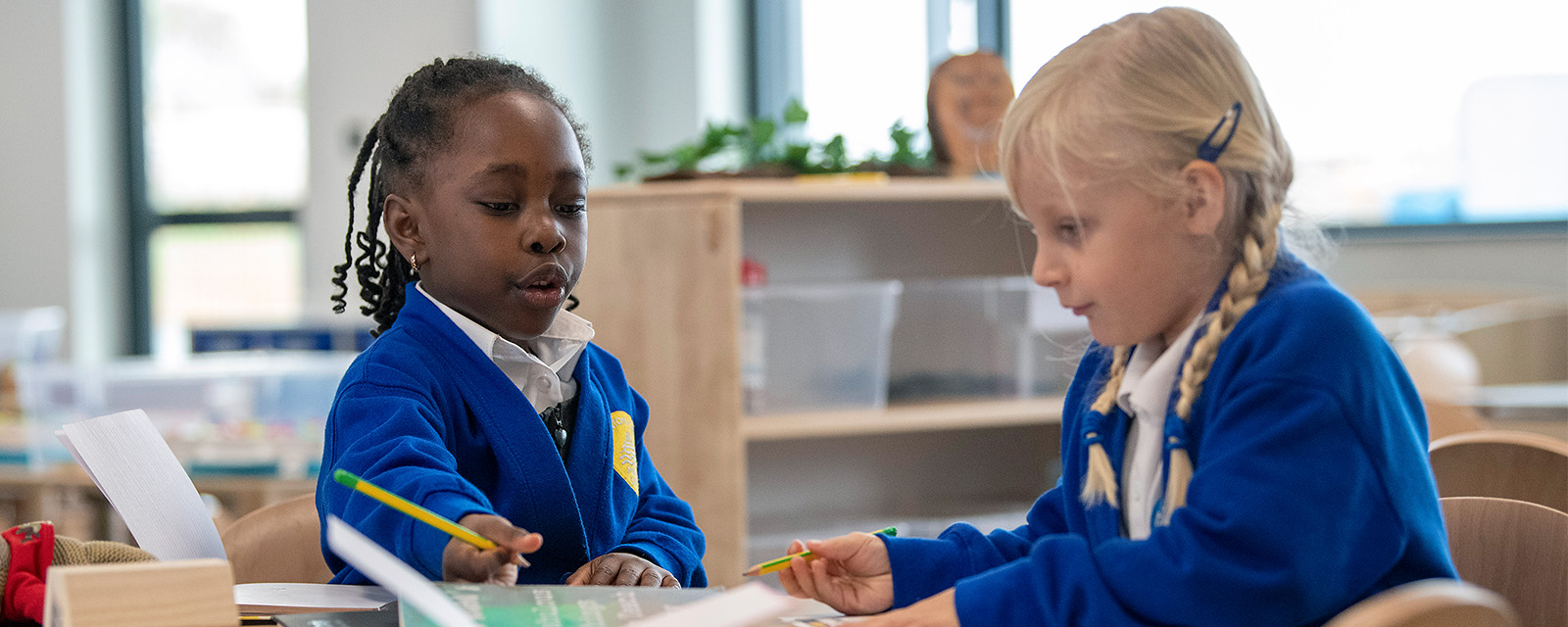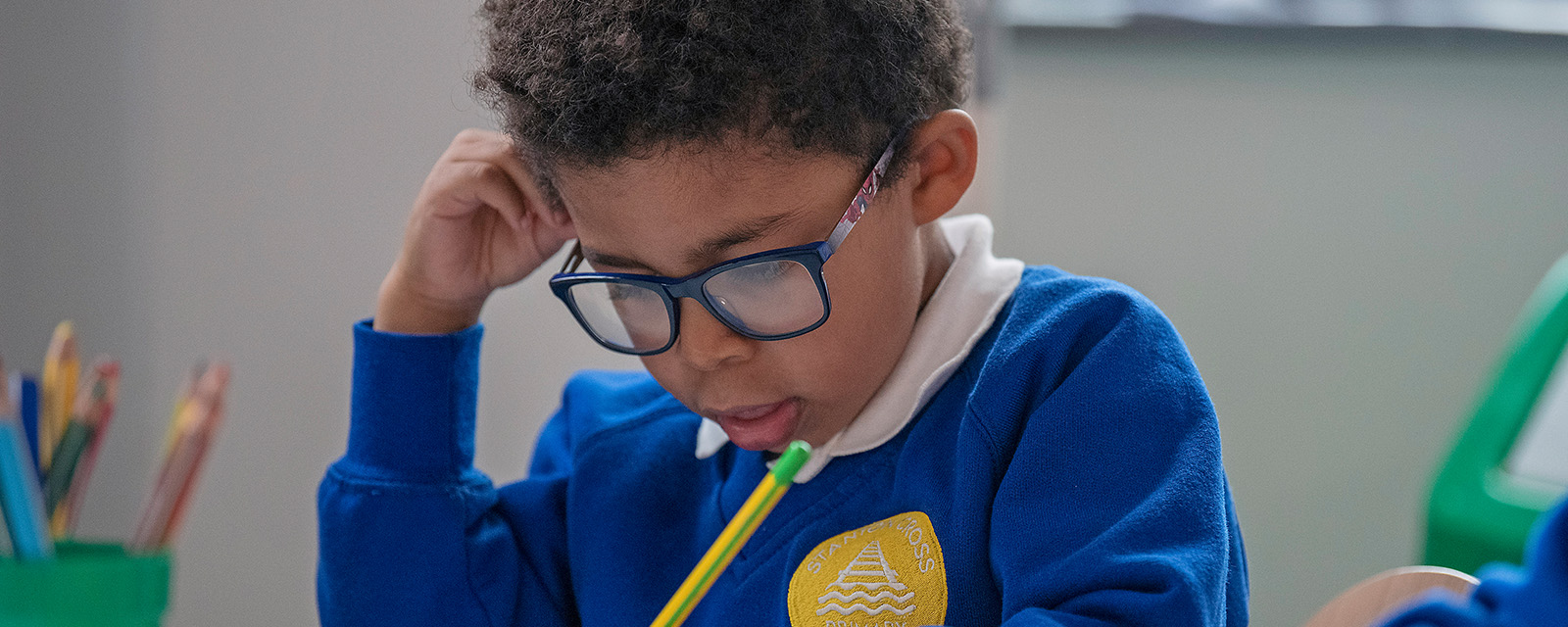Reading

Our reading curriculum aims to promote and attain the highest standards of reading whilst equipping the children with a love of literature which they carry with them for life. We aim for our children to become readers with agency and foster a life-long appreciation for reading.
We intend for our children to become fluent, confident readers who understand the importance of reading. They will read a rich variety of fiction and non-fiction literature ranging from: graphic novels, classic texts and magazines to comics, poems and modern stories. An enjoyment of reading is at the heart of the curriculum and through this, children will be avid readers that choose to choose to both read to learn and to read for pleasure.
All children will have participated in a variety of quality book related experiences and have acquired the linguistic skills in order to discuss, evaluate, reflect, compare, critique and engage in dialogic talk about a wide range of literature in order to form an opinion.
At Stanton Cross Primary School, we teach
Reading along with
Book Talk as a process to teach comprehension and further develop children’s reading fluency.
The strategies that teachers explicitly teach through the Reading process are linked to the reading content domains.
|
Content domain reference
|
|
1a
|
draw on knowledge of vocabulary to understand texts
|
|
1b
|
identify / explain key aspects of fiction and non-fiction texts, such as characters, events, titles and information
|
|
1c
|
identify and explain the sequence of events in texts
|
|
1d
|
make inferences from the text
|
|
1e
|
predict what might happen on the basis of what has been read so far
|
1. Self-monitoring (inner voice asking: ‘Does that make sense?’)
2. Predict
3. Locate and link (retrieval)
4. Use the structure of the text
5. Draw on prior knowledge
6. Imagine (visualize)
7. Question
8. Clarify
9. Summarise
10. Compare
As children move towards Key Stage 2, increased emphasis is placed on modelling written responses as well as oral responses and children will become more familiar with the test-type questions through carefully selected sentence stems from the content domains.
|
1a: Draw on knowledge of vocabulary to understand texts:
- What does this… word/phrase/sentence… tell you about… character/setting/mood etc?
- Highlight a key phrase or line. By using this word, what effect has the author created?
- In the story, 'x' is mentioned a lot. Why?
- The writer uses words like … to describe …. What does this tell you about a character or setting?
- What other words/phrases could the author have used?
- The writer uses …words/phrases…to describe … How does this make you feel?
- How has the writer made you and/or character feel …happy /sad/angry/ frustrated/lonely/bitter etc? Can you find those words?
- Which words and /or phrases make you think/feel…?
|
1e: Predict what might happen on the basis of what has been read so far:
- Look at the cover/title/first line/chapter headings…what do you think will happen next? How have the cover/title/first line/chapter headings…helped you come up with this idea?
- What do you think will happen to the goodie/baddie/main character? Why do you think this?
- What will happen next? Why do you think this? Are there any clues in the text?
- Can you think of another story, which has a similar theme; e.g. good over evil; weak over strong; wise over foolish? Do you think this story will go the same way?
- Which stories have openings like this? Do you think this story will develop in the same way?
- Why did the author choose this setting? How will that effect what happens next?
- How is character X like someone you know? Do you think they will react in the same way?
|
|
1c: Identify and explain the sequence of events in texts:
- What happens first in the story?
- Use three sentences to describe the beginning, middle and end of this text?
- You’ve got ‘x’ words; sum up this story.
- Sort these sentences/paragraphs/chapter headings from the story
- Make a table/chart to show what happens in different parts of the story
- Why does the main character do ‘x’ in the middle of the story?
- How does the hero save the day in the story?
|
1d: Make inferences from the text:
- What makes you think that?
- Which words give you that impression?
- How do you feel about…?
- Can you explain why…?
- I wonder what the writer intended?
- I wonder why the writer decided to…?
- What do these words mean and why do you think the author chose them?
|
|
1b: Identify and explain key aspects of fiction and nonfiction texts, such as characters, events, titles and information:
|
- Where/when does the story take place?
- What did s/he/it look like?
- Who was s/he/it?
- Where did s/he/it live?
- Who are the characters in the book?
- Where in the book would you find…?
- What do you think is happening here?
- What happened in the story?
- What might this mean?
|
- Through whose eyes is the story told?
- Which part of the story best describes the setting?
- What part of the story do you like best?
- What evidence do you have to justify your opinion?
- Find, it. Prove it.
- How do the title/contents page/chapter headings/glossary/index… help me find information in this book?
- Which part of the text should I use to find…?
- Why has the author organised the information like this?
|




